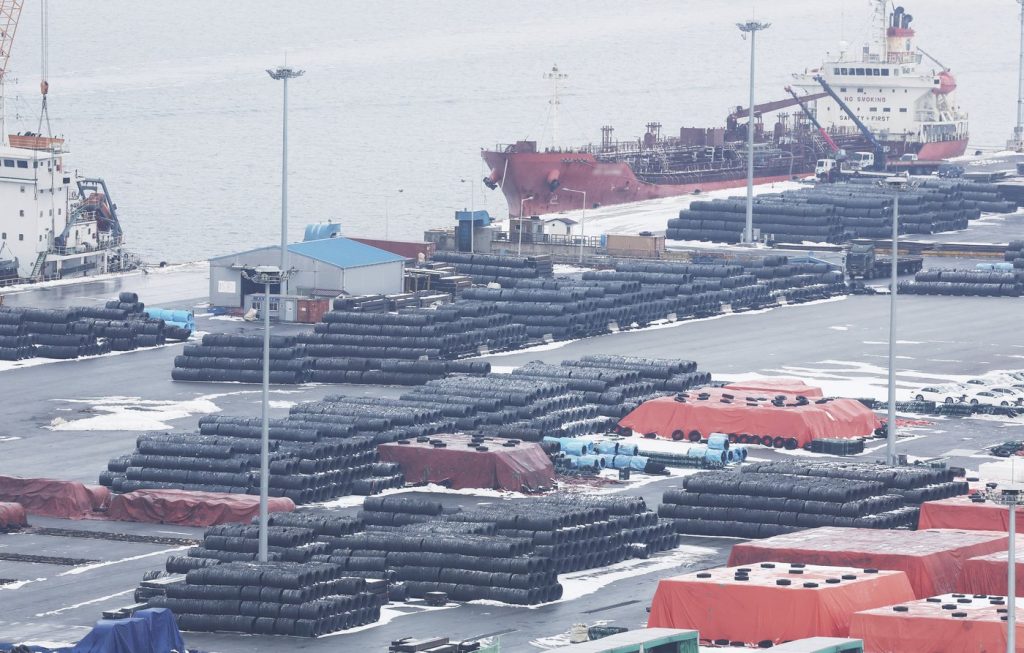SEOUL, South Korea (AP) - South Korea's leading economic think tank, the Korea Development Institute (KDI), has significantly revised its economic growth forecast for the country for the second time within four months. On Tuesday, the KDI announced that it now expects South Korea's economy to grow by just 1.6% in 2025, which represents a reduction of 0.4 percentage points from its previous estimate made in November.
According to KDI economist Kim Jiyeon, the "deterioration of the trade environment" following the inauguration of U.S. President Donald Trump has been a major contributor to this decline in growth projections. Furthermore, South Korea is facing its own set of challenges, including political instability stemming from the impeachment and criminal indictment of President Yoon Suk Yeol, who briefly imposed martial law in December.
The country's domestic demand remains sluggish, marked by weak consumer spending and a declining job market. Additionally, the pace of exports is experiencing a slowdown, particularly as most key industries, except for semiconductors, struggle to regain upward momentum. Jung Kyuchul, head of KDI’s macroeconomic analysis department, warned that further reductions in growth projections could be on the horizon if Trump's trade measures escalate or South Korea's political upheaval continues.
In a briefing, Jung explained that in November, the KDI had anticipated a gradual approach by Trump regarding tariff increases, believing that they would be implemented slowly and not all at once within the year. However, the situation has unfolded differently, with quicker and more aggressive tariff increases being imposed, particularly targeting countries like China. "We expected uncertainties to be resolved after the Trump administration took office, but we are now in a situation where uncertainties have actually grown," Jung remarked.
Recently, President Trump announced plans to impose 25% tariffs on all foreign steel and aluminum products, following his earlier decision to apply 10% duties on all imports from China. This move is part of Trump's broader initiative to reshape global trade relations dramatically.
While Jung indicated that Trump's tariffs on steel and aluminum are not likely to have a significant effect on South Korea's economy—given that these steel products account for less than 1% of South Korea's exports to the United States—the potential for tariffs on more critical sectors looms large. Trump is reportedly considering imposing tariffs on significant export categories such as automobiles, semiconductors, and pharmaceuticals.
"Since our semiconductor exports are substantial, the economic impact would be considerable if that sector takes a hit," Jung cautioned. This sector's performance is vital for South Korea's economic health, and any adverse measures could have widespread consequences.
Overall, South Korea faces complex challenges from both external pressures, particularly from U.S. trade policies, and internal political uncertainty, all of which combine to create a precarious economic outlook moving forward.










